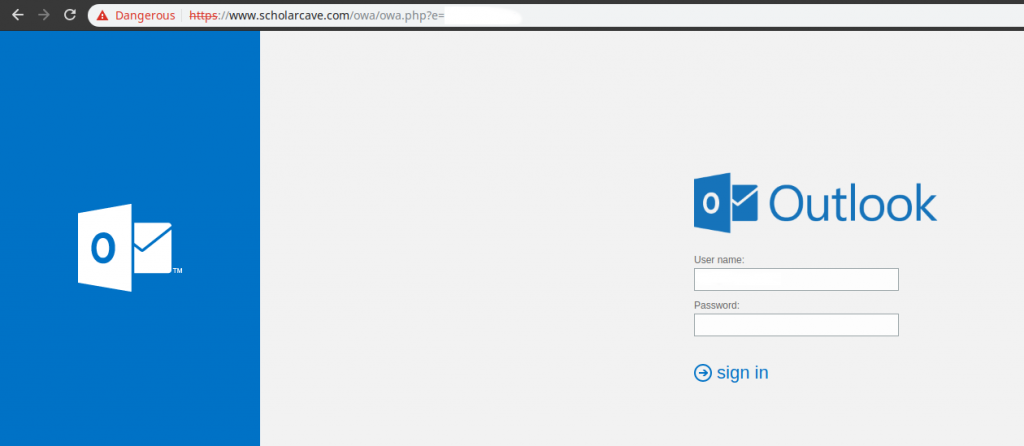People across the world are striving to minimize the spread of pandemic coronavirus, Country’s are being lockdown in the wake of its people’s health and life. On the other hand, cybercriminals are taking advantage of the situation of Coronavirus, they are carrying attacks via phishing emails and other mediums.
Barracuda report shows, there is a consecutive increase in the number of COVID-19 related phishing email attacks since Jan 2020. Researcher also found that a recent spike in these types of attacks, up 667% since the end of Feb 2020.
From 1st March to 23rd March, Barracuda Sentinel has detected 467,825 spear-phishing email attacks, and 9,116 of those exposures were related to Coronavirus factoring about 2% of attacks. In comparison, a total of 1,188 COVID-19 associated email attacks were identified in Feb, and just 137 were identified in Jan.
Although the overall number of these cybersecurity attacks is still low compared to other cybersecurity threats, the threat is advancing fast.

The Threat
COVID-19 Related Phishing Emails — A type of phishing campaigns are taking benefit of the heightened focus on coronavirus pandemic COVID-19 to spread malware, steal account credentials, and scam users out of money. The cybercriminals are utilizing traditional phishing tactics that are seen consistently. However, a growing number of these campaigns are using the COVID-19 as a lure to try to trick distracted people capitalize on the fear and unpredictability of their meant victims. The FBI recently issued an alert about these types of attacks.
Barracuda report shows the following three main phishing attacks using coronavirus themes —
- scamming,
- brand impersonation
- business email compromise.
Of the coronavirus related attacks detected by Barracuda Sentinel through 23rd march 2020, 54% were scams, 34% were brand impersonation attacks, 11% were blackmail, and 1 percent are business email compromise.

Phishing attacks using Coronavirus as a hook are quickly getting more sophisticated. In the past few days, Barracuda researchers have seen a significant number of blackmail attacks popping up and a few instances of conversation hijacking. In comparison, until just a few days ago we were primarily seeing mostly scamming attacks. As of March 17, the breakdown corona-virus phishing attacks detected by Barracuda Sentinel, 77 percent were scams, 22 percent were brand impersonation, and 1 were business email compromise. We expect to see this trend toward more sophisticated attacks continue.
The Goals of the attacks ranged from distributing malware to stealing credentials, and financial gain. One new type of ransomware our systems detected has even taken on the COVID-19 namesake and dubbed itself CoronaVirus.
Skilled attackers are good at leveraging emotions to elicit response to their phishing attempts, such as the ongoing sextortion campaigns, which rely on embarrassment and fear to scam people out of money. With the fear, uncertainty, and even sympathy stemming from the coronavirus COVID-19 situation, attackers have found some key emotions to leverage.
For example, we saw one blackmail attack that claimed to have access to personal information about the victim, know their whereabouts and threatened to infect the victim and their family with coronavirus unless a ransom was paid. Barracuda Sentinel detected this particular attack 1,008 times over the span of two days.
Scams
Many of the scams that Barracuda Sentinel detected were looking to sell coronavirus cures or face masks or asking for investments in fake companies that claimed to be developing vaccines.
Scams in the form of donation requests for fake charities are another popular phishing method our researchers have seen taking advantage of coronavirus.
For example, one such scam caught by the Barracuda systems claims to be from the World Health Community (which doesn’t exist but may be trying to take advantage of similarity to the World Health Organization) and asks for donations to a Bitcoin wallet provided in the email.

Malware
A variety of common malware are being distributed through coronavirus-related phishing, especially modular variants that allow attackers to deploy different payload modules through the same malware. The first malware reported utilizing coronavirus was Emotet, a popular banking Trojan, which went modular last year. IBM X-Force discovered Emotet being distributed in Japanese emails claiming to be from a disability welfare provider. The phishing emails contained a document which downloaded and installed Emotet when macros were enabled, a common practice for malware distribution these days.
LokiBot is another modular malware, which often aims to steal login credentials and data and has been distributed in at least two different coronavirus-related phishing campaigns that Comodo has tracked two campaigns. One campaign used the premise of attached invoices, which contained LokiBot, but added an apology for the delay in sending the invoice due to coronavirus. The other campaign claimed to be a news update and “1 thing you must do” (a play on the common “one weird trick” hook common in spam), which contained a link to the malware. Barracuda systems have seen multiple examples of emails using the invoice premise, such as the one below, which was detected more than 3,700 times.

Credential Theft
In addition to widespread credential harvesting from information-stealing malware, phishing attacks with links to spoofed login pages are also using coronavirus COVID-19 as a lure. One such variant that Barracuda systems detected claims to be from the CDC and attempts to steal Microsoft Exchange credentials when the malicious link is clicked. An example of the email and the phishing page are shown below.


A wide variety of email login pages are commonly spoofed by attackers, targeting the email portal users are accustomed to when this mail server information can be scraped by attackers. Other login pages are more generic or offer multiple options for provider, spoofing each provider login page. Attackers are simply changing to the existing credential phishing email premise to capitalize on coronavirus.
Guide to stay safe
While phishing emails leveraging coronavirus are new, the same precautions for email security still apply.
- Be wary of any emails attempting to get users to open attachments or click links. Anti-malware and anti-phishing solutions can be especially helpful to prevent malicious emails and payloads from reaching intended recipients, but even with such protections in place caution should always be used since no solution catches everything.
- Watch out for any communications claiming to be from sources that you normally would not receive emails from. These are likely phishing attempts. While receiving coronavirus-related emails from legitimate distribution lists to which you belong is becoming common, emails from organizations that you do not regularly receive messages from should be scrutinized closely. For example, the CDC is not going to be sending out emails to anyone who doesn’t regularly receive emails from them already.
- Use caution with emails from organizations you regularly communicate with. Brand impersonation is quite prevalent in coronavirus-related email attacks, so use caution opening emails with organization from organization you expect to hear from. This is especially true for those in the healthcare industry since it is being targeted by cyberattacks trying to capitalize on the pressure resulting from handling an influx coronavirus cases.
- Find credible charities and donate directly. A common tactic for coronavirus-related scams is asking for donations to help those affected by the pandemic. To avoid falling victim to one of these attacks, don’t respond to email requests for donations. Instead, find credible charities helping with coronavirus efforts and donate directly through them to help ensure that funds end up where they can do good rather than in the hands of scammers. It’s also highly unlikely that any legitimate charities are taking donations through Bitcoin wallets, so seeing that in an email should be a red flag.
Also Read: How to keep your device and data secure while working from home



















